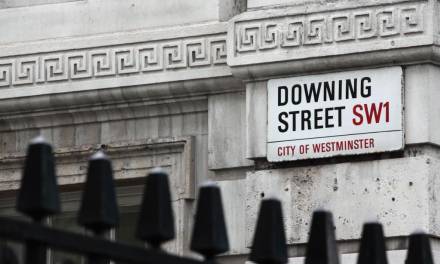Governments are announcing plans for school closures around the world. But with online learning, school can contingency plan for closures and ensure safeguarding is achieved.
Yesterday, the UK Government released details for a ‘Coronavirus Bill‘ which will be put before the House of Commons today. There are rumours that more significant measures could come into effect this Friday as a result.
But what could the Coronavirus Bill mean for schools? And how should school contingency plans be informed by and support online learning?
What is the Coronavirus Bill?
The Coronavirus Bill is to be put forward as “it envisaged that changes to legislation might be necessary in order to give public bodies across the UK the tools and powers they need to carry out an effective response to this emergency.
“Some of the proposed changes therefore deal with easing the burden on frontline NHS and adult social care staff, some help staff by enabling them to work without financial penalty, and some support people and communities in taking care of themselves, their families and loved ones, and their wider community.”
What does the Coronavirus Bill include?
The legislation will allow for:
- The Home Secretary will be given the power to request ports and airports temporarily close and suspend operations if there is a shortage of Border Force staff.
- Police and immigrations officers will be given the power to detain a person and quarantine them if they are infectious.
- Recently-retired doctors or medical students to be registered as regulated healthcare professionals in order to boost the number of NHS staff.
- Social workers who have recently left the profession to be temporarily added to registers.
- Workers to be able to take an emergency volunteer leave, for up to four weeks, with a compensation fund to be established to cover their loss of earnings and expenses.
- A change from two doctors to just one doctor to detain and treat patients for a mental health disorder.
- Schools and children’s nurseries to be forced to close – or forced to stay open – as well as relaxing some requirements such as maximum class sizes.
- Increased use of video and audio in court.
- The temporary appointment of Judicial Commissioners, who authorise warrants under anti-terror laws, should there be a shortage.
- The Government to have the power to restrict or ban any events or gatherings.
- Some bureaucracy surrounding funerals and cremations – including the list of people who can register a death – to be removed.
- Local councils to directly take over the management of deaths, should the number of deaths to exceed the capacity which can be managed locally.
- The food industry to be forced to provide information about food supplies.
What would the Coronavirus Bill mean for schools?
Today, the Daily Mail reports that schools may be forced to close by the end of the week due to falling staff levels. Many teachers and school staff are forced to stay at home to look after their families.
Last week, the UK Government announced plans to keep schools open. However, with numbers of teaching staff who are off sick, which have left many under resourced.
Annwen Mellors, headteacher of Alderman White School said: “I am quickly realising that it is impossible to implement strategies to stop the spread of Covid-19 within a school.
“We all repeatedly touch surfaces touched by others, and it is impossible to keep everyone over a metre apart.”
Ultimately, across the country teachers are preparing online learning opportunities so that effectively school is still open, even if the building is closed.
The school subsequently sent out a message, stating:
“Every student that stays at home reduces the risk to us all – especially staff and students who have to come into school. If you need us to supervise your child please send them to school as usual – do not ask older family members to look after them.”
The Government’s plan to introduce legislation forcing to close schools and nurseries, could mean the above example becomes the norm. It also means school closures can be more centrally controlled, which could have significance should isolation become widespread.
The UK Government maintains that although school closures haven’t been authorised yet, it is something “they have not ruled out“.
School still open: how can online learning help?
Online learning means school still be open if setbacks occur.
The benefit of online learning means that lessons, assessments, revision, coursework and other tasks can be set and completed without putting other people at risk.
EDClass+ features 11,000 lessons in a wide range of subjects. It also features mental health support should issues arise in this area as a result of the pandemic.
At EDLounge, with overseas EDClass+, the number one priority is safeguarding. Features include eyes-on learning, alert mechanisms and live teaching. You can read the 2019 Ofsted report for EDLounge here.
For more information call 01909 568 338.









